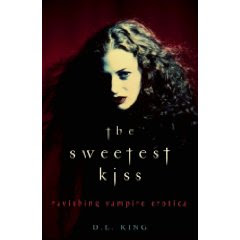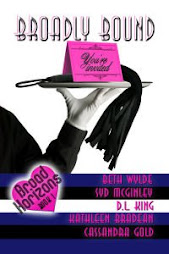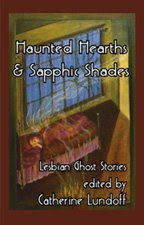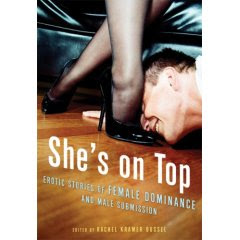At lunch with writer Michael Thomas Ford last weekend, he mentioned that as soon as he typed the last word on his gay romance titles, he sent them off to his publisher. That struck me as terrifying. I couldn't do that. There are some huge differences between Mike and me though, the biggest being that he's a professional writer. He probably emerges from a story with a clean draft. He must edit as he goes. Plus he's probably a better typist than I am.
I have to step away from a story for a while and come back to it. For most writers, this is a good idea. You can never have fresh eyes when reading your work, but the more time you spend away from it, the better the chances are that you'll see what you actually wrote and not what you meant to say. For writers like me who make their words pull double duty with layered meaning, distance is even more important.
As tempting as it is to jump in, polish, and send that story out, my advice is to let it be. Move on to something else. Read a good book. After a couple weeks, if you can spare the time, print it out (I don't know why stories read different on paper than they do on a computer screen, but they do.) and look at it with a critical eye.
My biggest faults are language and redundant sentences. I tend to write the way I talk, which can come off as stilted on the page. So I simplify the language the way I would for a business letter. Not terse, just clear. Fewer words, shorter words. I also have to trust the reader's intelligence, so any sentences that bluntly tell what I've already shown have to be cut.
It's not that I'm good at waiting. Recently, I sent out a terrible copy to beta readers because I craved feedback. Luckily, neither one got to it before I made major changes, so they got the new copy and (hopefully) will get back to me soon with their opinions. There's a lesson in that. Let it be. Let it go. Give it time - unless you're Mike and have the skills to do it right the first time.
Sunday, August 23, 2009
Subscribe to:
Post Comments (Atom)















.jpg)











1 comment:
Since I started writing for the Heat Flash podcast 2 years ago, I've had to go with the "write it and produce it immediately" schedule. I do write a month in advance of recording each story, but since I immediately have to move on to the next story, I don't have the luxury of doing a lot of editing later on. Sometimes, for other projects, I make time, but not for the podcast stories.
It used to be scary, but I got used to it, and now I trust myself a lot more.
Post a Comment